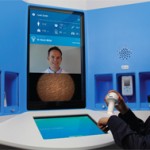In the late 1990s, Thomas Baranowski, PhD, professor of pediatrics specializing in nutrition at the Baylor College of Medicine, Houston, applied for a grant. For years, he had been interested in finding ways to get children to change their diet and physical activity. He decided to try a video game, and he got the money…






